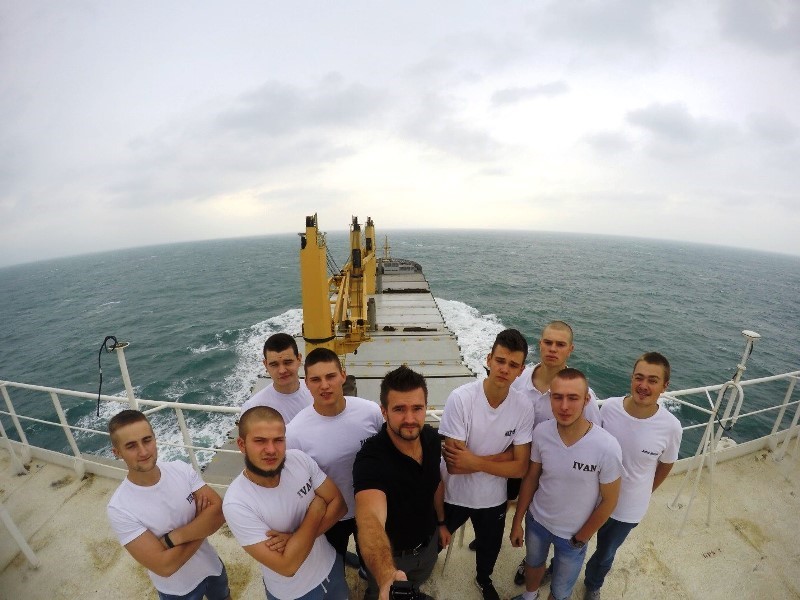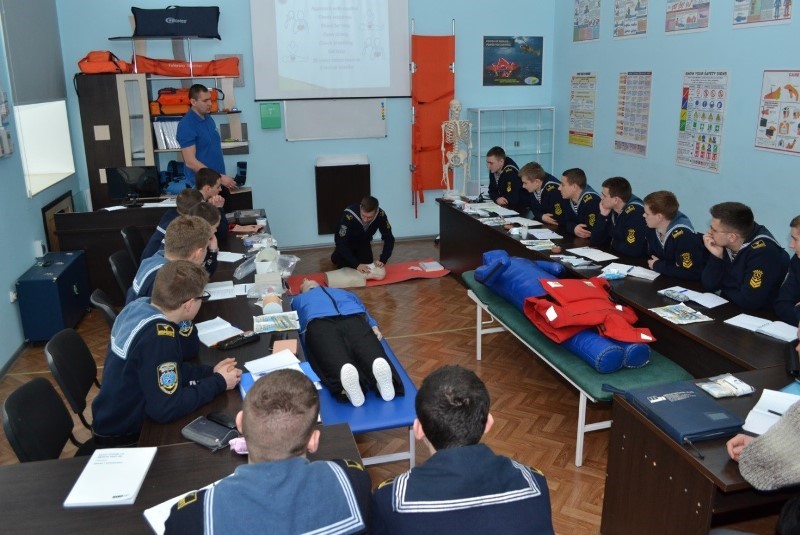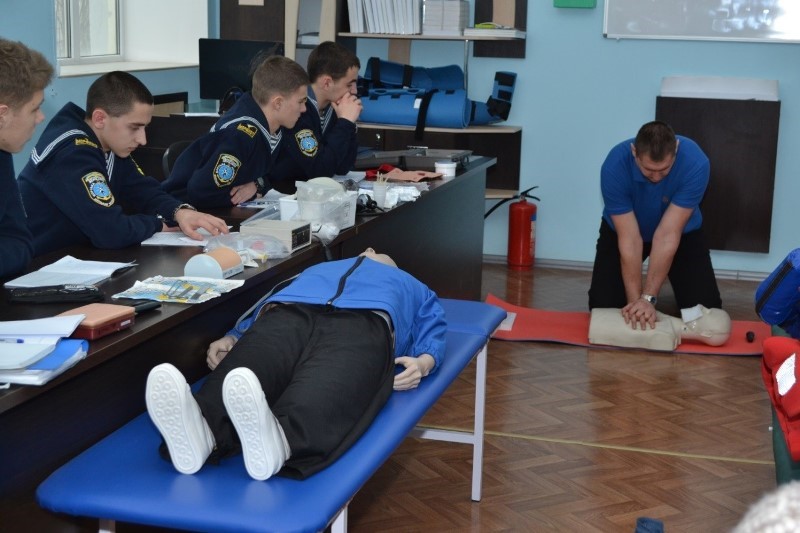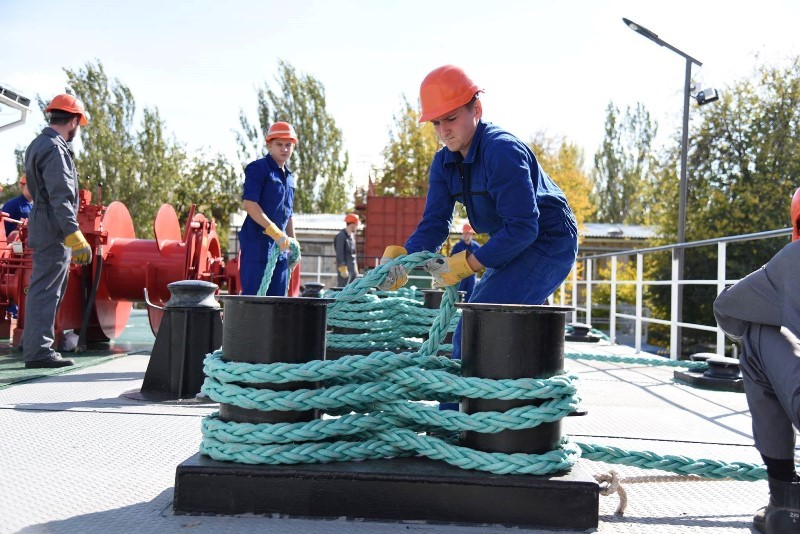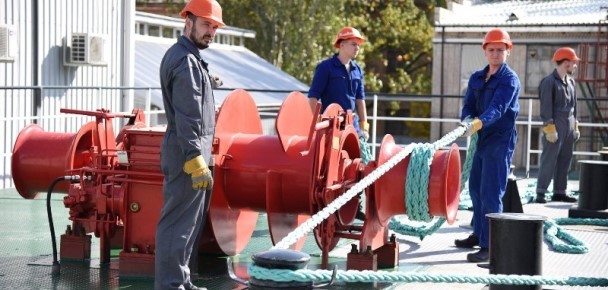The laboratory contains the water pool intended for working out skills in survival at sea and rescue from the helicopter cabin and the closed-type rescue boat. All the works related to installation of the training complex equipment were accomplished by the Irish company SEFtec. The laboratory allows cadets to acquire practical skills in the training course of personal survival at sea technique, medical first/elementary aid, personal safety and public duties in compliance with the national requirements and standards of the 1978 STCW International Convention as amended, Regulation VI/1, Section А-VI/1 (paragraphs 1-2) of the STCW Code, the IMO 1.13, 1.20, 1.21 Model courses requirements.
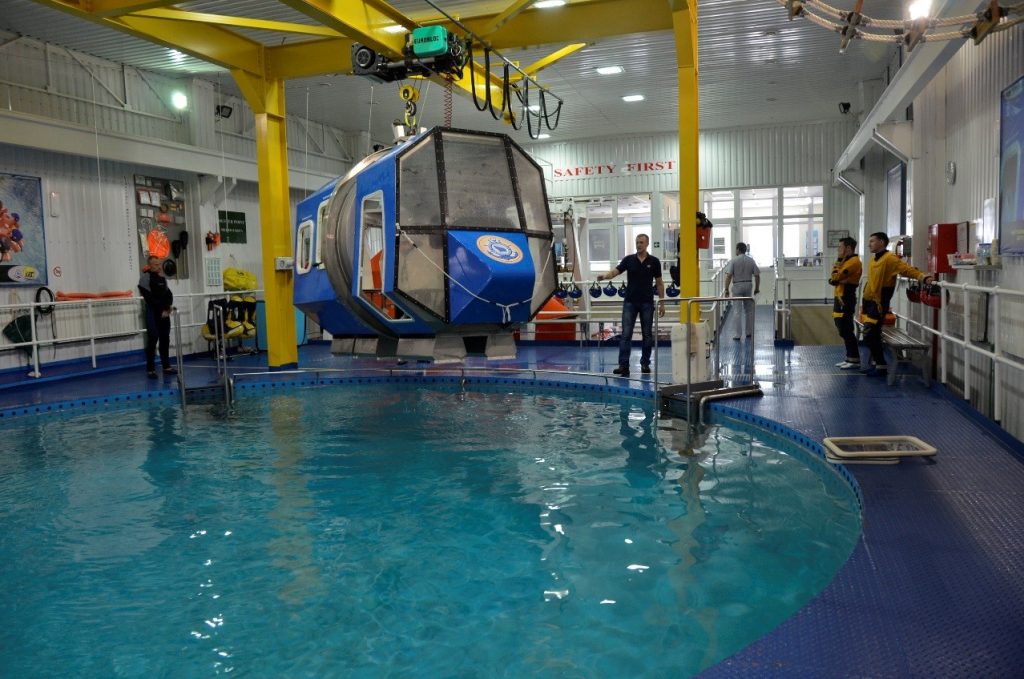
The laboratory consists of a study classroom equipped with multimedia devices for performing presentations during training classes and simulators for working out practical skills in emergency abandoning of the helicopter using breathing apparatus, helicopter safety belts, airplane and helicopter rafts as well as abandoning from the helicopter under water through the emergency exits (doors and windows).
The helicopter cabin simulator of the laboratory allows simulating landing on water, diving of the helicopter, losing its stability and the cabin rotation of 180° ass well as to exercise watery landing (a jump from the helicopter into the water with further taking on a survival craft), dry landing (landing from the helicopter cabin directly to a survival craft), a number of exercises related to emerging from the drowned helicopter cabin.
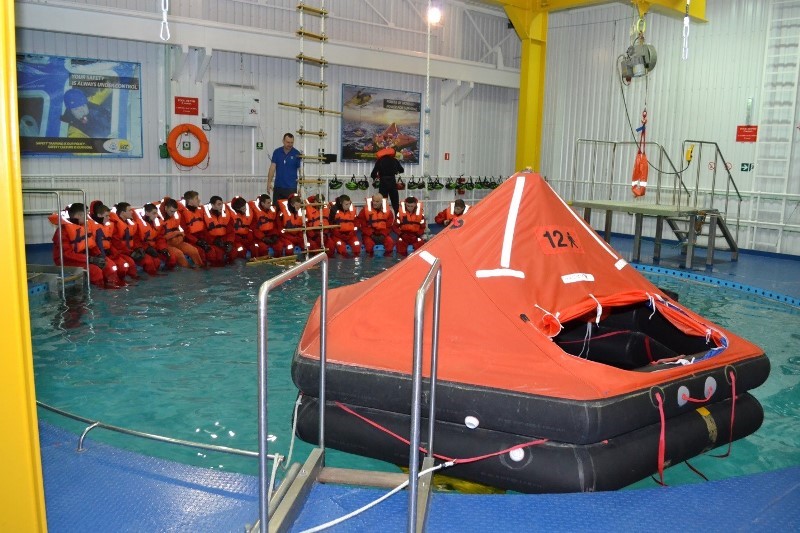
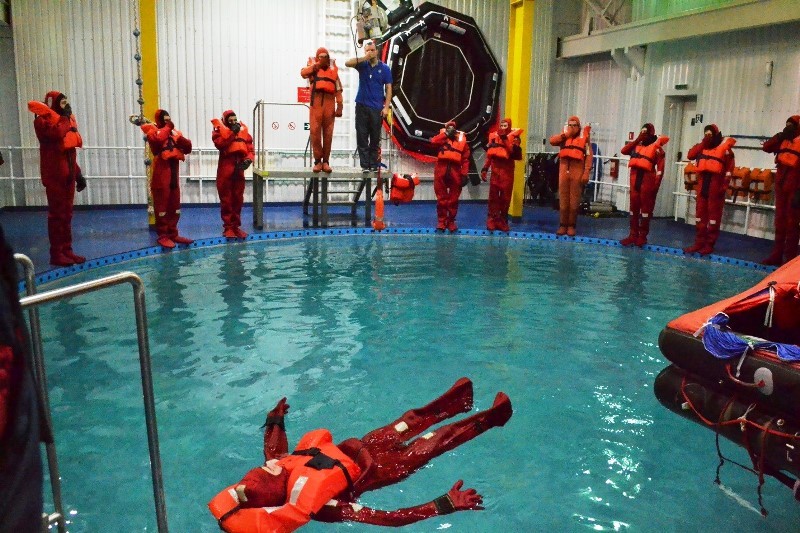
Disciplines taught in the laboratory: “Familiarization, educational and safety training for all seafarers”, “Specialist in lifeboats, life rafts and non-speedboats”, “BOSIET”, “FOET”, ” HUET ”,“ Basik H2S ”,“ CA-EBS ”.
Educational laboratory «Group Life-Saving Appliances Onboard Vessel»
The laboratory is located at KSMA Water Station. Laboratory includes simulators: free fall life boat simulator with the davit for launching the boat; fast rescue boats with a stationary motor and a set of oars.
The equipment is certified by The Shipping Register of Ukraine.
The free fall life boat simulator allows cadets and seafarers to develop the skills required to launch, operate and install a free fall life boat in accordance with the requirements of the STCW Code, as amended, section A-VI / 2, Table A-VI / 2-1. The equipment of the simulator allows to carry out training preparation in the following directions:
free fall life boat (introductory course);
free fall life boat control.
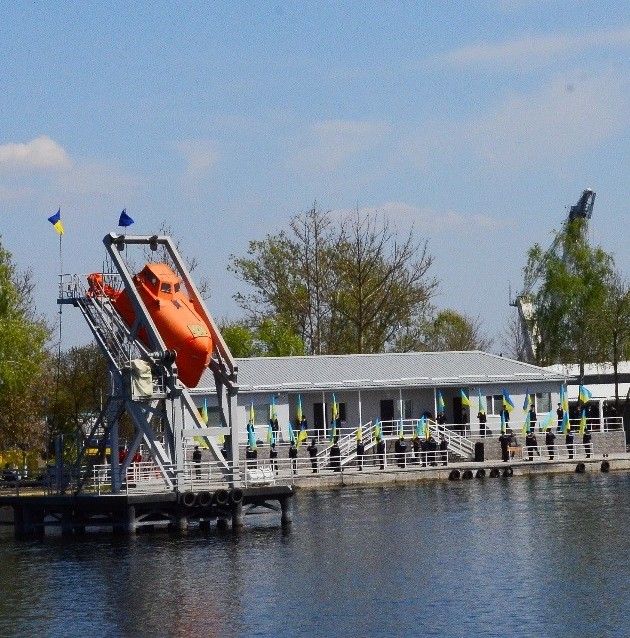
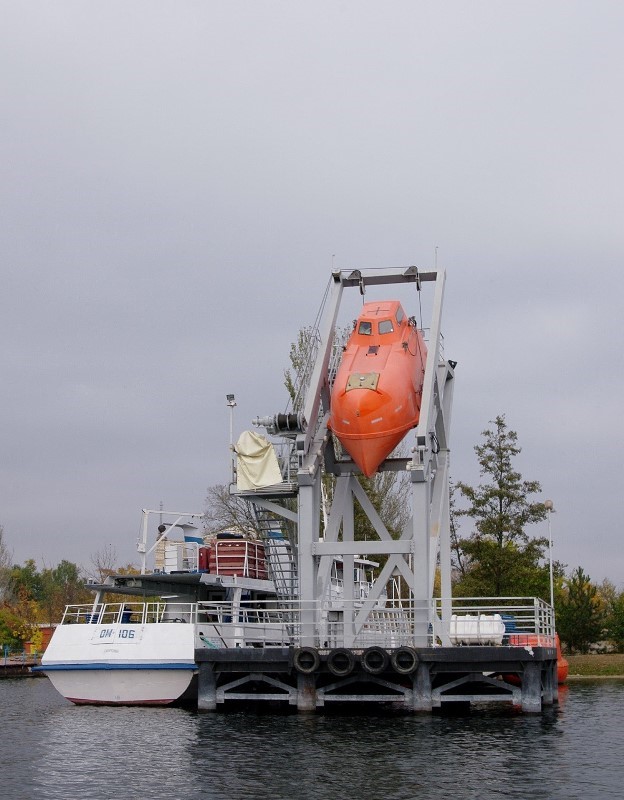
The fast rescue boats simulator allows cadets to acquire the necessary skills to ensure the training and embarkation of people in fast rescue boats, safe launching and lifting of the boat on board, operation and control of the fast boat engine. Also, with the help of the simulator, cadets acquire the ability to control a high-speed motor boat or, if necessary, boat on oars, including in rough seas. This simulator allows for practical and theoretical training of cadets / students (pupils) and seafarers in accordance with the requirements of section A-VI / 2-2 of the STCW Code (as amended) and the recommendations of the model course IMO 1.24 ” Proficiency in Fast Rescue Boats” in the following competencies:
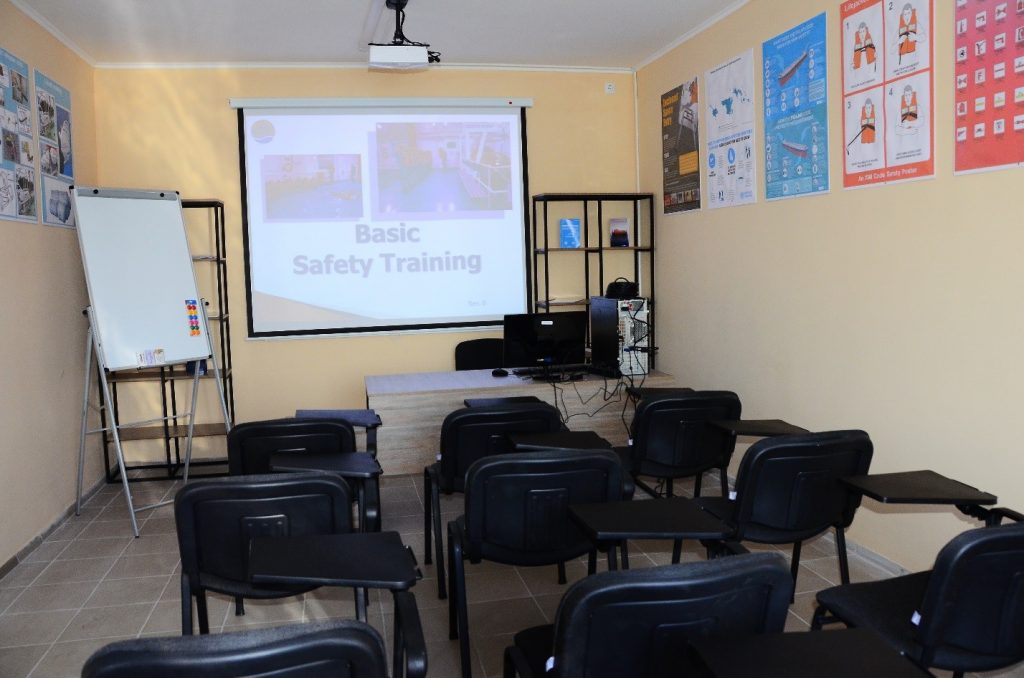
- understanding of the construction, maintenance, repair and equipment of the fast rescue boat;
- control of normally installed trigger equipment and devices during descent and ascent;
- command of the fast rescue boat with normal equipment during descent and ascent;
- command of the fast rescue boat after the descent;
- operation of the fast rescue boat engine.
Disciplines taught in the laboratory: “Free fall life boat (introductory course)”, “Free fall life boat management”, “Professionals in life boats and rafts, rescue boats, that are not fast rescue boats”, “Professionals in fast rescue boats” .
Training Laboratory “Fire Ground”
It consists of 2 containers (a 40-ft one and a 20-ft one) reconstructed for conducting simulator training in fire-fighting. The containers are equipped with sprinkler system; it is possible to imitate fire in an engine room or living quarters and hold training in evacuation from a smoke-filled premise.
This laboratory promotes the formation of cadets’ skills of general organization and tactics of firefighting on board in accordance with the requirements of section A-VI / 3 of the STCW Code (as amended) and the recommendations of the Model course ІМО 2.03 “Advanced Training in Fire Fighting”.
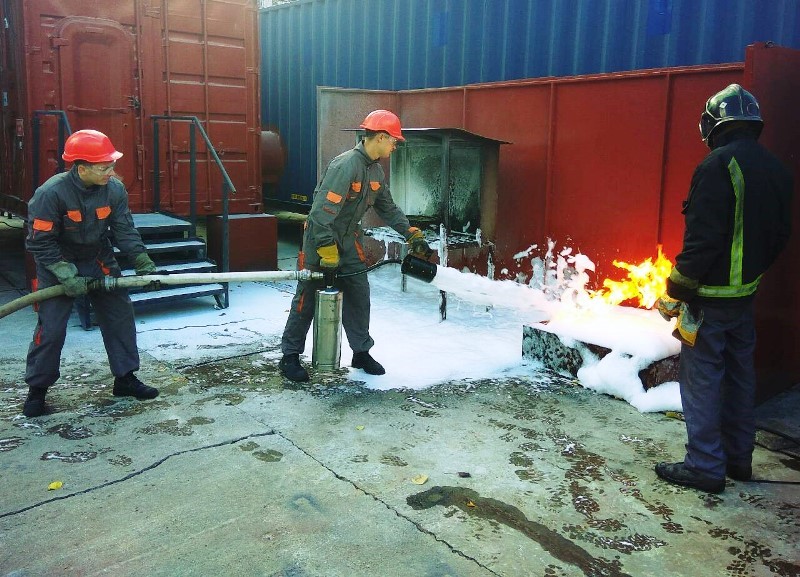
The simulator allows to train skills of firefighting on board, the organization and preparation of fire parties, check of the equipment and systems for detection and extinguishing of fire, investigation and drawing up of reports on fire cases.
The laboratory includes a classroom equipped with multimedia devices for performing presentations during theoretical and practical classes.
This simulator allows for practical and theoretical training of cadets / students with the subsequent formation of the following competencies:
- management of firefighting operations on board;
- organization and preparation of fire parties;
- inspection and maintenance of fire detection and extinguishing systems and equipment;
investigating and reporting fire incidents.
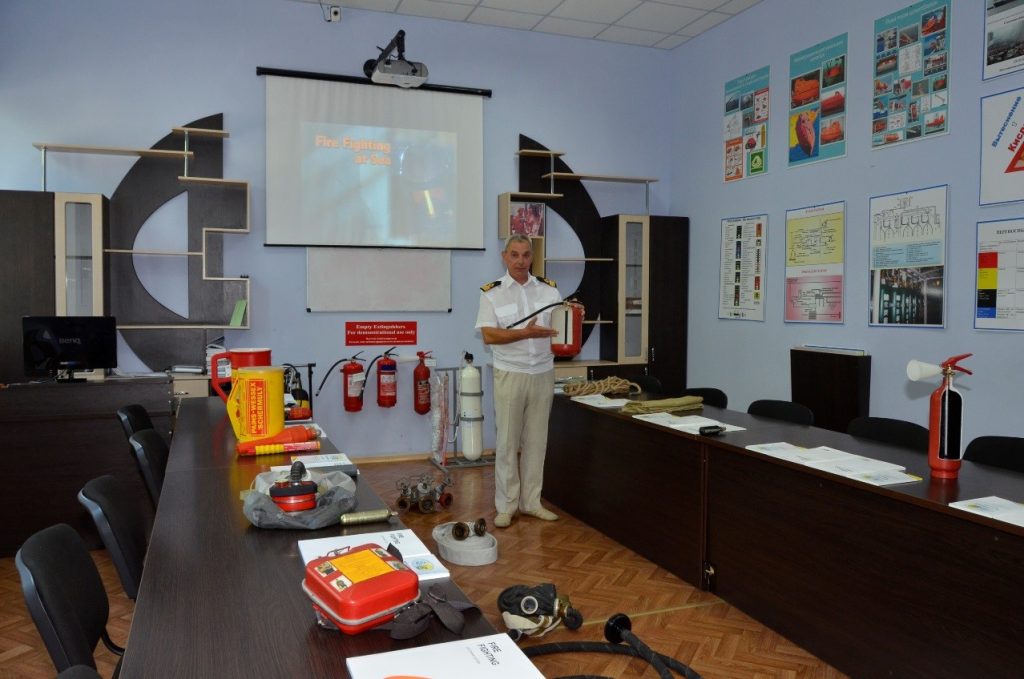
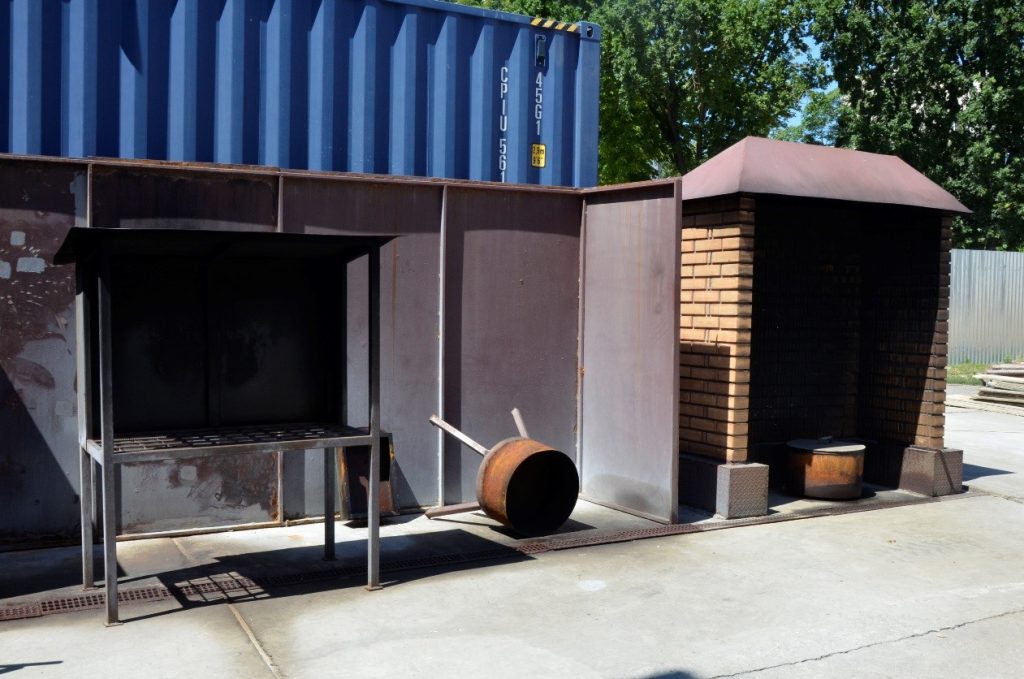
Disciplines taught in the laboratory: ” Survey course of integrated training for maritime practice and state certification”, ” AFF – Advanced Fire Fighting”, ” BST – Basic Safety Training” , “Familiarization, initial training and safety briefing for all seafarers”, “Extended firefighting program”, “Medical care onboard ship”.
Training Laboratory «Medical Care Onboard Ship»
The laboratory (225 room AB-1) is designed for theoretical training of cadets, students on the acquiring minimal standards of competencies in medical elementary and first aid on board ship, practical skills in cardiopulmonary resuscitation, immobilization of injured stopping bleeding, providing care for burns, poisoning and other issues, as required by Chapter A-IV of the STCW Code, IMO Model Courses 1.13, 1.14, 1.15, international rules for the provision of medical care onboard ship.
The main objective of the course is to instill in cadets knowledge, understanding and professional skills in assessing the assistance needed by the victim and the threat to their own safety, understanding of emergency measures to be taken in emergencies, rules of care for victims, participation in coordinated schemes for ships medical assistance. Disciplines taught in the laboratory: “ Survey course of integrated simulator training for marine practice and state attestation”, ” “ MFA – Medical First Aid On Board Ship”, “ BST – Basic Safety Training”, “MC – Medical Care on Board Ship”, “ Familiarization, initial training and safety briefing for all seafarers”, “ First aid on board ship ”, “ Medical care on board ship ”.
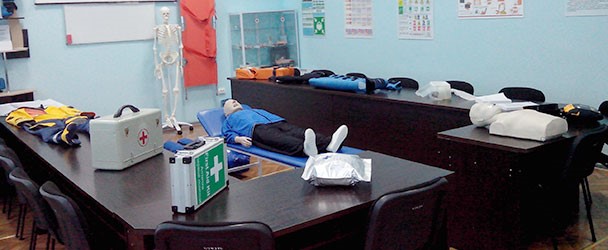
Training Laboratory “Training Complex – Mooring Station”
The laboratory is intended for theoretical training of cadets and students in issues of acquiring minimal standards of competencies in mooring and unmooring in different winds, tide flows and currents with and without tugs; theoretical study of mooring devices which are the complex of manufactured articles and mechanisms intended for fastening of a vessel to onshore and floating berthing objects and other vessels and secure fixation of a vessel to them; working out practical skills in performing preparation processes, conducting mooring operations, holding a vessel at berthing objects and maintenance of mooring objects in compliance with Chapter А- II “Standards Regarding the Master and Deck Department” of the STCW Code, Model course 7.03.
main objective of the course is to form knowledge, understanding and acquiring of professional skills by cadets related to taking decision as to mooring which should be based on proper evaluation of maneuvering characteristics of a ship and its power plant as well as forces which are expected to take actions during berthing, ensure fulfilment of safety-first requirements when performing operations.
Disciplines taught in the laboratory: “Survey course on mooring operations ”, “Professionals in life boats and rafts, rescue boats, that are not fast rescue boats (theoretical part)”, “Safe Mooring Operation Course”, “Work Permit and Enclosed Space Entry”.
Laboratory «High Voltage Equipment»
High voltage equipment manufactured by Schneider Electric is intended for obtaining practical and technical knowledge according to the requirements of the STCW Code (with amendments), Table А–ІІІ/6 on safe exploatation of ship electrical equipment over 1000V (High Voltage Safety & Operational Procedures).
The training program for high voltage equipment is intended for learning the following materials:
- technology and physical basics of high voltage technique;
- electrical charges;
- isolation of high voltage equipment;
- work conditions and requirements for exploitation of high voltage equipment, the term “voltage swell”;
- switching equipment of the МС-Set board;
- capacitive current canceling, earthing of high voltage equipment;
- classification requirements for ship high voltage equipment
- main switchboard for 6,3 kW;
- high voltage generators and engines;
- electric propulsion with the use of high voltage;
- electic propulsion control systems «Azipod»;
- safe exploatation and technical maintenance of high voltage systems, protection of high voltage hardware;
- safety regulations during exploitation and maintenance of high voltage equipment;
examples of ship electrical power plants over 1000 V, mains power.
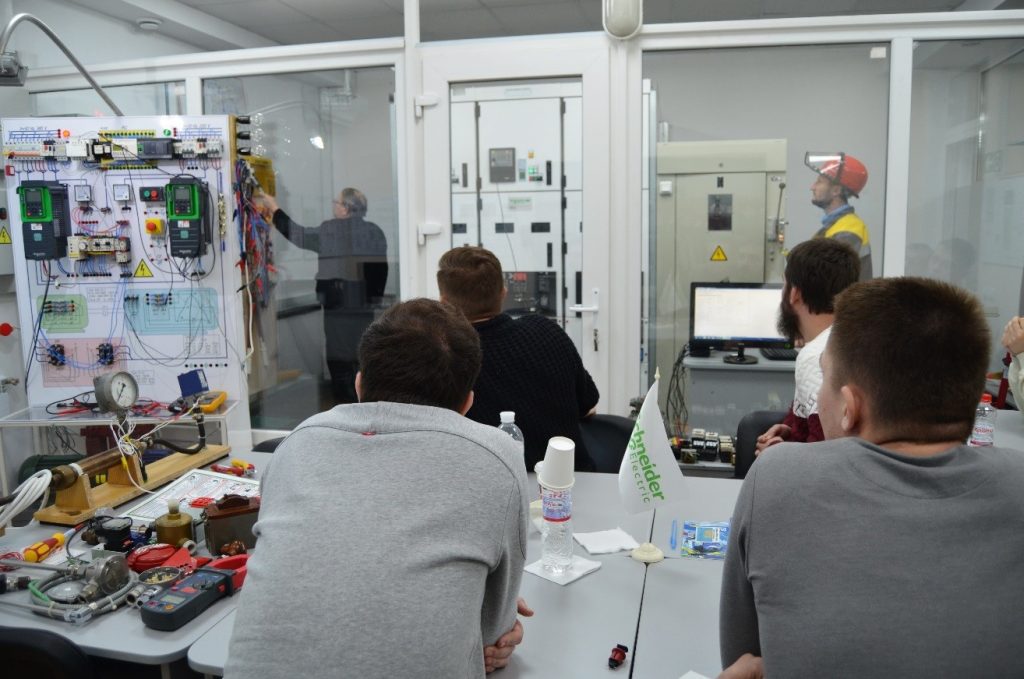
Disciplines taught in the laboratory: “ Training courses”, “High Voltage Training”, “Marine Automation and Control Systems Training”
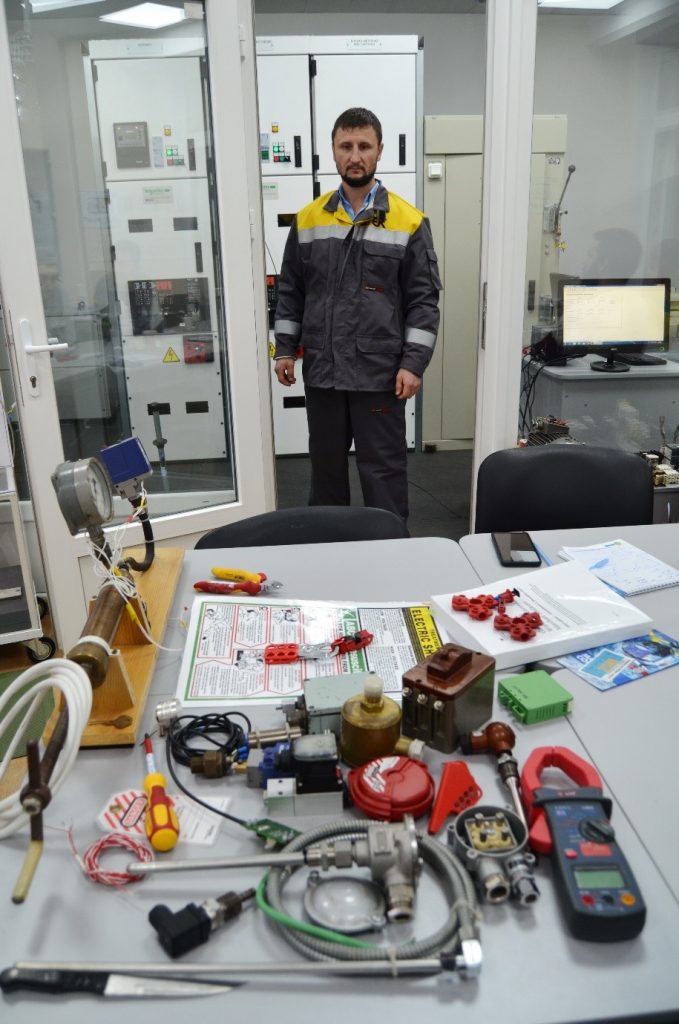
Methodological Laboratory onboard Vessel «Warnow Jupiter»
The goal of creation and activity of the laboratory is gaining methodological, practical and research experience by the cadets/students during the practical training onboard training and production vessel «Warnow Jupiter» with its further implementation in educational process of KSMA, improvement of the practical training quality onboard marine vessels of other shipping companies.
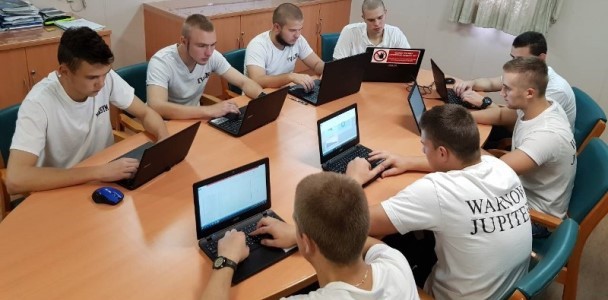
The activity of the laboratory is aimed at uniting together efforts of KSMA teaching staff and workers of Marlow Navigation in order to improve production training and performing experimental research within scientific and research works, creation of the conditions for the cadets/students to gain knowledge, abilities and skills while working with the most modern ship equipment.
